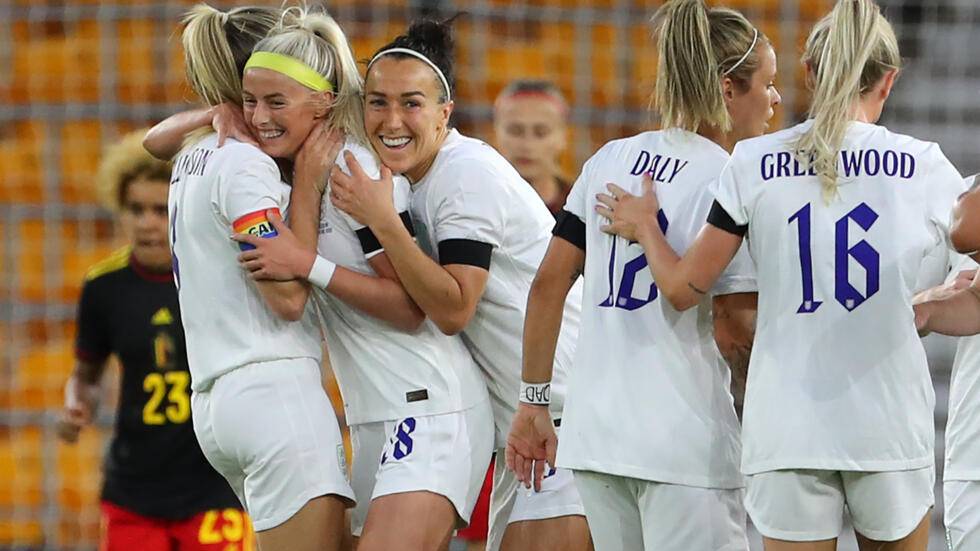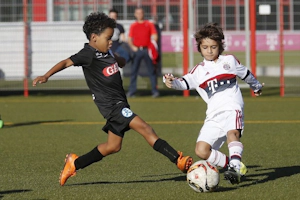History and evolution of women's football

Girl and football? A skeptic might smirk, "Well, Never!" while an optimist would exclaim, "Oh! That's great!"
I am an optimist.
Why have women started playing football, traditionally considered a "non-feminine" sport? How did society perceive women's football, and what is its history? Does the behavior of women differ from men on the field? What stereotypes have famous female footballers shattered, and why have they become the subject of ridicule by bloggers and journalists? And why did FIFA allocate significant funds for the development of women's football in 2019, confirming its importance and popularity on the global stage? All this and more awaits you in this article.
Photo from the official website of sportarena_com
The History of Women's Football Development
Let's dive a little into history and find out where this aesthetically unpleasing sport for ladies originated?
In the mid-19th century, football for girls was more of a pastime for the upper class. For instance, brides found grooms and spent time playing football if they got bored of horseback riding and cricket. Since then, interest in the game has spread among women from different social strata, with some attempting to join men's teams, often resulting in ridicule. There were no specialized footwear, uniforms, or protective gear, and the playing fields often resembled muddy patches, making it challenging to run around without falling. Moreover, playing in dresses and lingerie was unbearably hot, and exposing any part of a woman's body was not allowed at the time.
Photo from the official website of sportarena_com
Nellie Hudson, a renowned advocate for women's rights, along with her friends, founded the football club FC British Ladies in England in 1874, and in one interview, she said she formed the team "with a firm intention to prove to the world that women are not just useless decorative creatures, as men try to portray them!" This statement caused quite a scandal in the press: British reporters noted that girls were completely unsuited for the strenuous work on the football field and such public expressions of feelings should not be taken seriously.
During World War I, women's football gained recognition among enthusiasts of the sport, as many girls, besides playing their favorite game, had to cope with strenuous labor and harsh military discipline, but they didn't stop playing football. The Ministry of War organized various leisure activities, the most popular of which was football. And to this day, girls "kick" the leather ball and attract crowds of passionate fans at football matches.
Photo from the official website of Sports_ru
Differences from Men's Football
So, many adhered to the cliché that football is exclusively a men's sport. But let's debunk these stereotypes, remove labels, and find out why the "weaker sex" is not so weak after all.
Today, sports traditionally considered male have become no less popular for girls. Many girls start getting into football from a young age and are quite successful at it. Many female commentators are seen at football tournaments and championships, often invited to officiate matches at the highest level. Even in stadiums, it's increasingly common to encounter representatives of the fairer sex who, with no less enthusiasm than men, cheer for their favorite football team and confidently grasp the intricacies of the game.
Photo from the official website of Sports_ru
Women's football, of course, differs from the men's game. Primarily, due to lower levels of testosterone, women cannot make powerful shots, which is one of the significant criteria for successful play in football. Also, women have certain physiological limitations. But they have access to high speed and agility, sports anger, perseverance, tactical interactions in team play, on par with boys. Girls are capable of showing a very spectacular game; they are more enduring, albeit less motivated but more passionate.
Photo from the official website of Sport_kg
Why Do Girls Start Playing Football?
I think the main reason is the need for socializing with peers, rather than dreams of conquering the podium and receiving medals. But even before this moment, it's not far away: in developed countries of Europe, there are many women's teams where girls do not feel judged or treated with disdain. Football for ladies becomes the norm there.
Photo from the official website of Sport_kg
World Famous Female Footballers
In the 20th century, outstanding female players adorned modern football, paving the way for the younger generation and becoming role models: American athlete Mia Hamm, Brazilian footballer Marta Vieira da Silva, and the winner of the UEFA Women's League - Marie-Louise Etta, who recently led a men's team in the Bundesliga. Marie-Louise garnered much opposition from journalists and bloggers on this matter, but her response was as follows: "I am not proud to be the only woman. As a person, I am happy to be able to do this job. I see no difference whether a man or a woman works in football. The quality of the coach on the field and beyond is crucial."
Photo from the official website of Setanta Sport
Modern Women's Football
These personalities demonstrated not only exceptional talent but also played a significant role in promoting everyone's favorite sport. Women's football is gaining immense popularity in the modern world; female footballers are fighting for their rights to receive proportionate fees for games, international matches, and national championships have begun selling broadcasting rights to television companies - hence, in 2019, FIFA allocated €1 billion for the development of the number one sport among girls and continued to invest until 2022.
Photo from the official website of Forbes
Football tournaments for girls
The girls' age category becomes the true highlight of any children's tournament. And it brings new acquaintances and relationships! I want this article to help engage girls in football, organize new football teams and tournaments! Here are some famous football competitions you can take your women's team to this year:
1. Mediterranean Girls Cup – one of the most prestigious tournaments among girls in France, with clubs from all over the world participating.
Photo from the official website of Spirit of St_Louise
2. Girls Football Festival – an international football tournament for girls, women, and open age categories, to be held on the Croatian peninsula of Istria in April 2024!
Photo from the official website of North Lanarkshire Council
3. Costa Daurada Verano Cup – a popular Spanish tournament to be held in the city of Salou, with women's teams from different countries participating in categories G11, G14, and G17.
4. Donosti Cup – another famous football tournament in Spain, including among women's teams in the city of San Sebastián! It will take place in July 2024!
Photo from the official website of Donosti Cup
5. Tallinn Cup – an international Estonian football tournament with three age categories for girls. Held every summer in early July in the capital of Estonia.
Photo from the official website of Tallinn Cup
Detailed information and other women's football tournaments this year can be found on the website Youngtalentsgroup.com, filtering by women's age categories.
The history of football is far from over: it is becoming increasingly popular, but there will still be those who say, "football is not a women's sport!" However, I am sure female footballers will continue to fight for their rights and "break" the long-outdated stereotypes that this sport belongs only to men.
Find Football tournament













